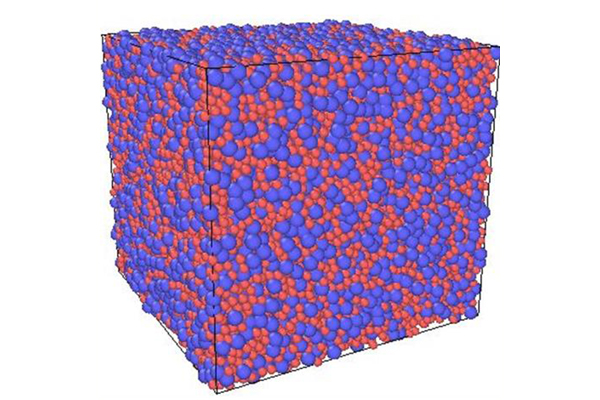New metallic glass research brings in artificial intelligence
Katharine Flores will use federal funding to use artificial intelligence-based algorithms to identify which metal alloys are best to form metallic glasses

Metallic glasses are a unique group of metal alloys with a disordered atomic structure, similar to the liquid state. Although the differences are at the level of atoms, they result in very different properties for the end materials, including increased strength, better resistance to corrosion, and the ability to be molded into complex shapes.
Katharine Flores, professor of mechanical engineering & materials science, has received a three-year, $379,392 grant from the National Science Foundation to use artificial intelligence-based algorithms to identify which metal alloys are best to form metallic glasses.
Flores and her team will use artificial intelligence to identify liquid compositions that could be good candidates to form metallic glasses, then create compact material libraries using an advanced 3D-printing method to study their mechanical behavior. The work is expected to speed discovery of new high-performance metallic materials that could be used as structural materials.
In addition, Flores, also director of the Institute of Materials Science and Engineering, will train graduate students in her lab on these processes and hold workshops for middle-and high-school teachers from diverse school districts.




